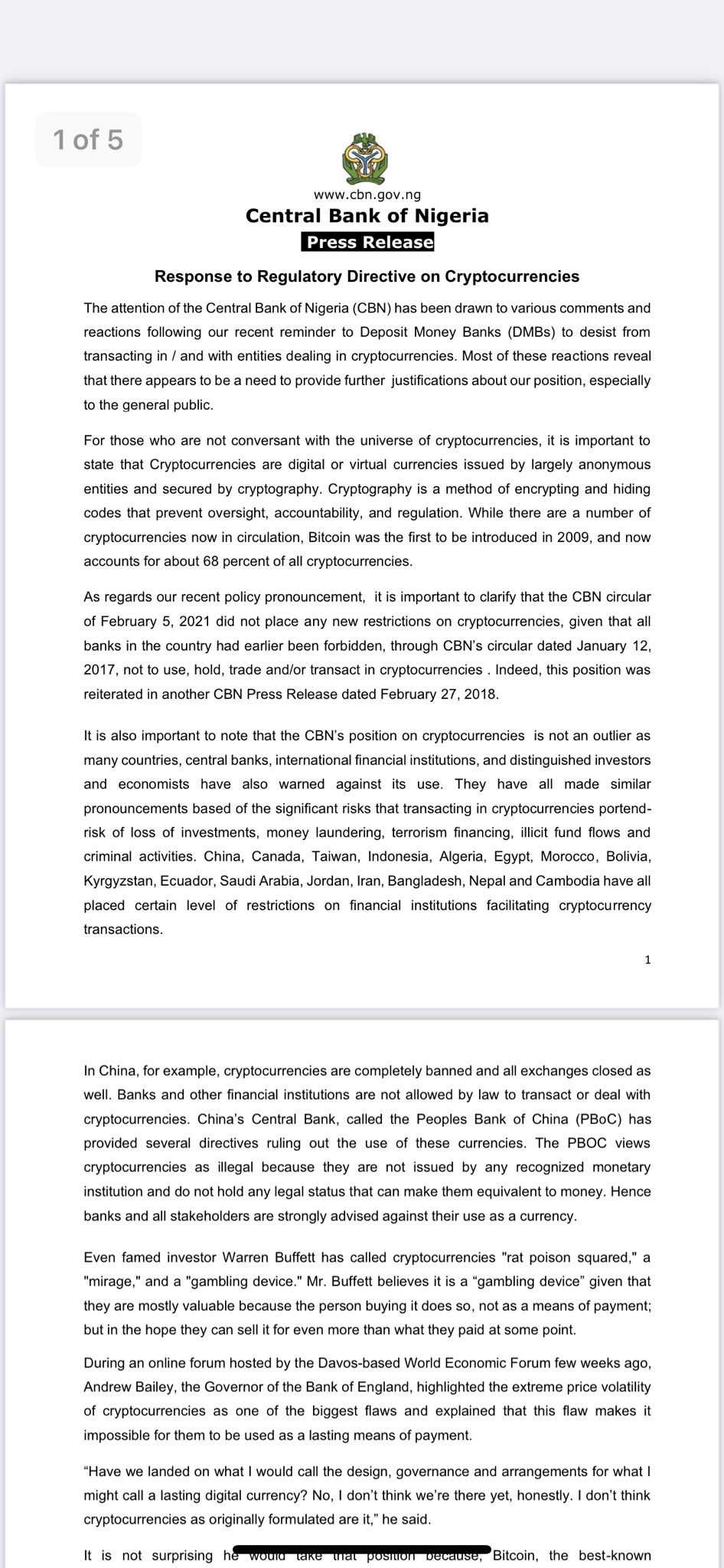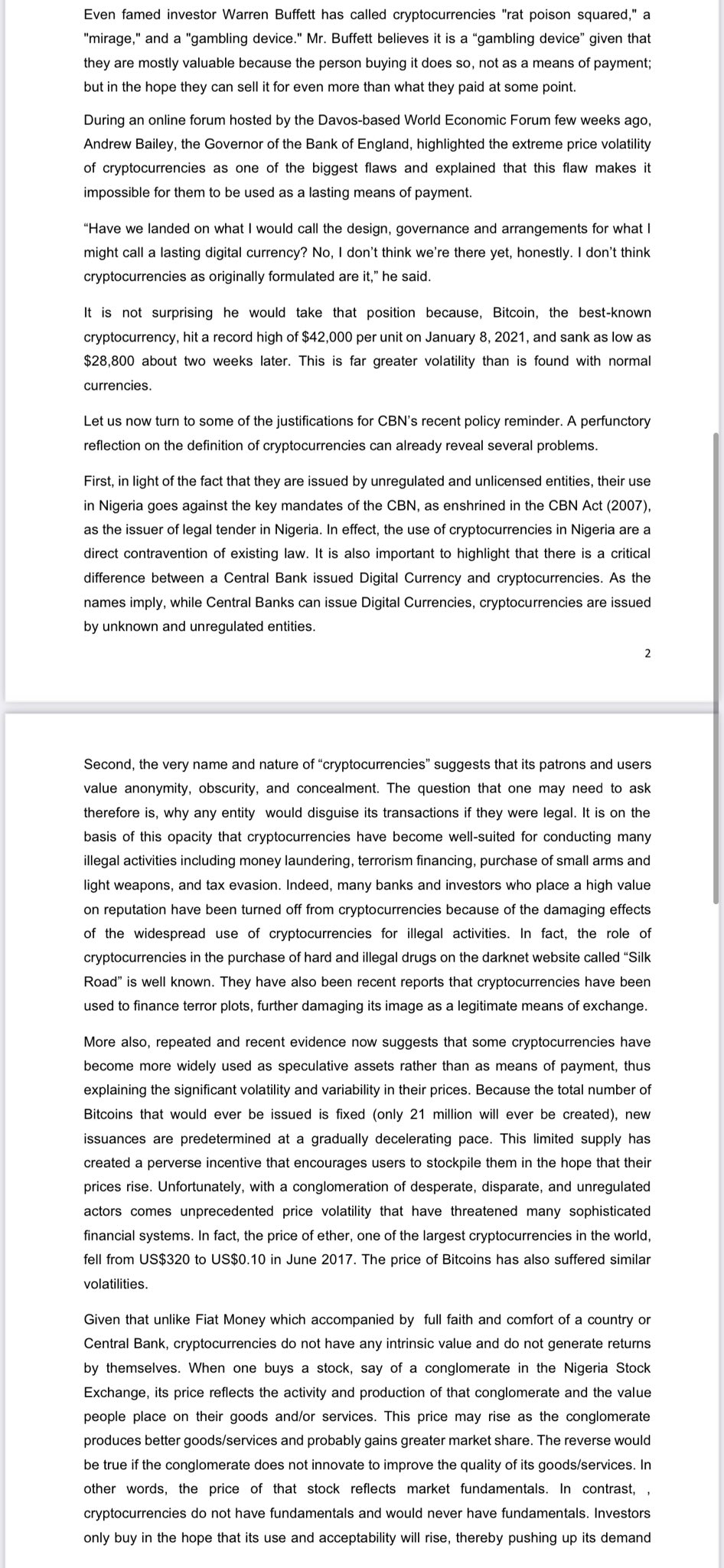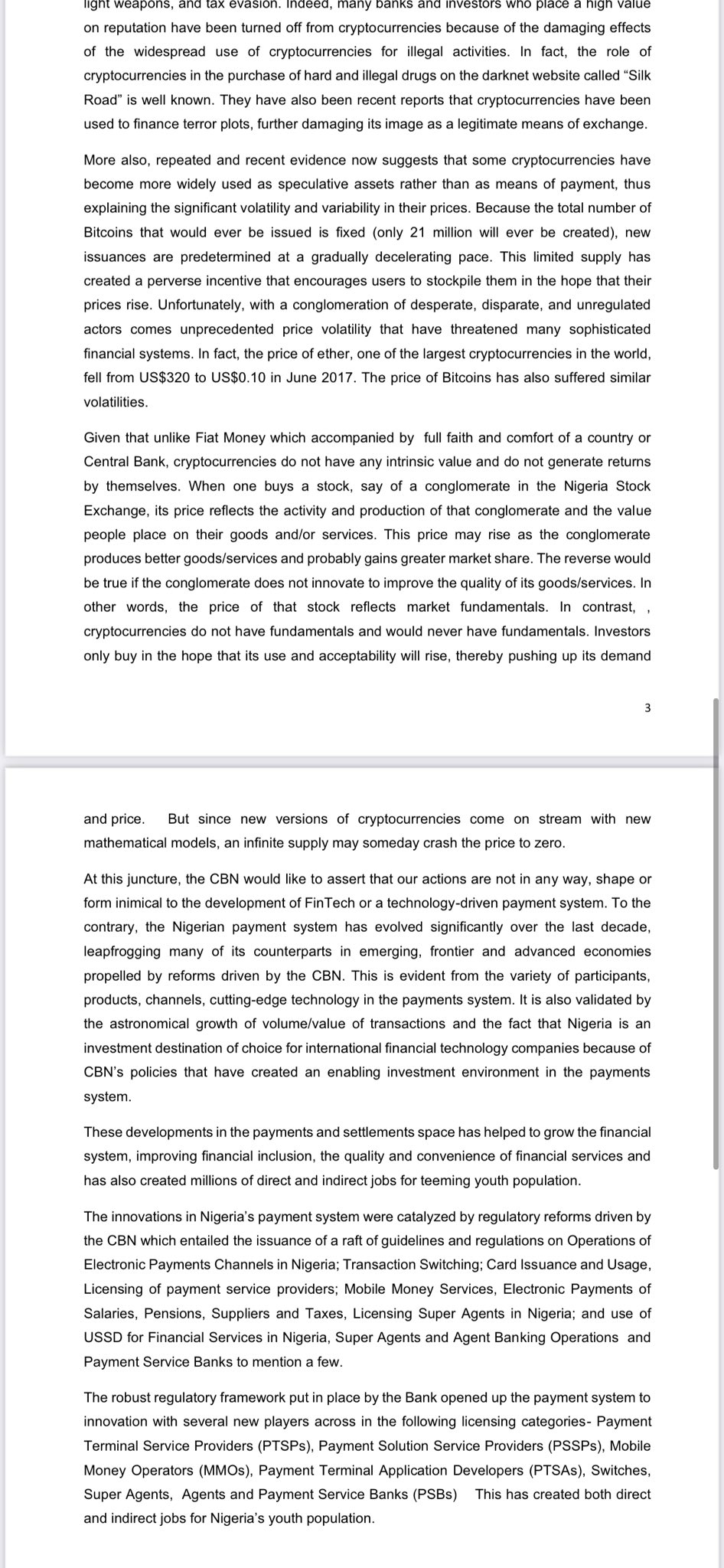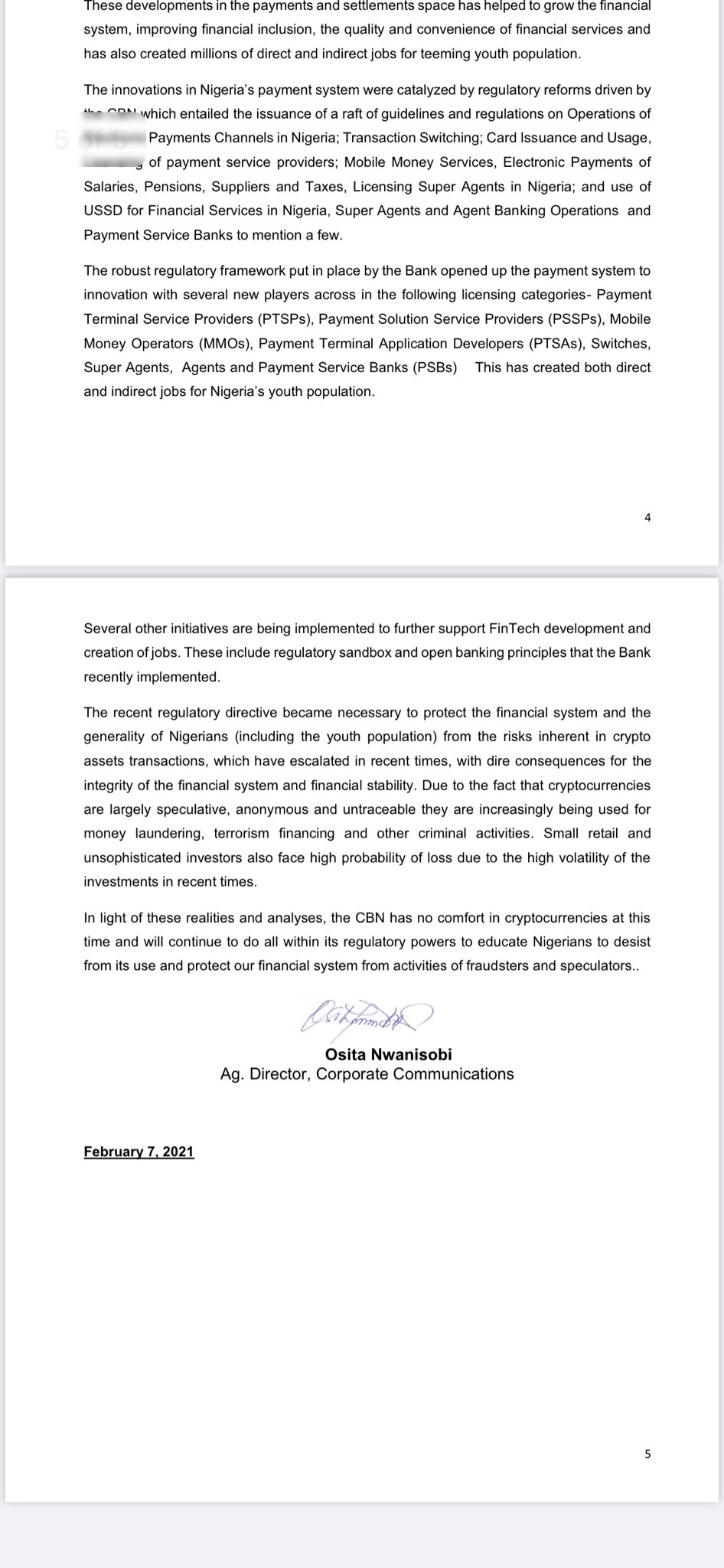 Central Bank of Nigeria (CBN) has justified its decision to restrict banks from dealing with any cryptocurrency-related transactions, saying it fuels illicit financial flow and terrorism.
Central Bank of Nigeria (CBN) has justified its decision to restrict banks from dealing with any cryptocurrency-related transactions, saying it fuels illicit financial flow and terrorism.
CBN, in a press release dated February 7, 2021 and signed by Osita Nwanisobi, its acting director of corporate communications, explained in detail the reason for its directive to Deposit Money Banks (DMBs) to desist from transacting in and with entities dealing in cryptocurrencies.
The apex bank’s statement comes amid growing criticism against CBN for directing banks to close customers’ accounts that trade in cryptocurrency.
The bank said it is determined to protect the country’s financial system from activities of “fraudsters and speculators”.
Read Also: Outcry Greets CBN’s Order Directing Banks To Close Accounts Related To Cryptocurrencies
Listing various reasons for its action, the central bank said not only are cryptocurrencies issued by unregulated and unlicensed entities, the patrons and users value “anonymity, obscurity, and concealment” and there are risks of “loss of investments, money laundering, terrorism financing, illicit fund flows and criminal activities”.
The press statement began by detailing what cryptocurrencies were by saying;
Cryptography is a method of encrypting and hiding codes that prevent oversight, accountability, and regulation. While there are a number of cryptocurrencies now in circulation, Bitcoin was the first to be introduced in 2009, and now accounts for about 68 percent of all cryptocurrencies.
In addition, CBN gave clarification on the most recent stance it took in restricting Crypto, saying;
As regards our recent policy pronouncement, it is important to clarify that the CBN circular of February 5, 2021, did not place any new restrictions on cryptocurrencies, given that all banks in the country had earlier been forbidden, through CBN’s circular dated January 12, 2017, not to use, hold, trade and/or transact in cryptocurrencies.
It advised the Nigerian public that such actions manifested, in leading economies that include China, Canada, Taiwan, Indonesia, Algeria, Egypt, Morocco, and others.
CBN stressed;
They have all made similar pronouncements based on the significant risks that transacting in cryptocurrencies portend-risk of loss of investments, money laundering, terrorism financing, illicit fund flows, and criminal activities. China, Canada, Taiwan, Indonesia, Algeria, Egypt, Morocco, Bolivia, Kyrgyzstan, Ecuador, Saudi Arabia, Jordan, Iran, Bangladesh, Nepal, and Cambodia have all placed a certain level of restrictions on financial institutions facilitating cryptocurrency transactions.
This is far greater volatility than is found with normal currencies. Let us now turn to some of the justifications for CBN’s recent policy reminder. A perfunctory reflection on the definition of cryptocurrencies can already reveal several problems.
The Nigerian leading financial regulator also spoke on the fact that some of these cryptos are issued by unregulated and unlicensed entities;
The question that one may need to ask therefore is, why any entity would disguise its transactions if they were legal. It is on the basis of this opacity that cryptocurrencies have become well-suited for conducting many illegal activities including money laundering, terrorism financing, purchase of small arms and light weapons, and tax evasion.
It added that a significant amount of people used it for speculative purposes rather than payment, citing the flagship crypto model as an example.
The apex bank stressed;
More also, repeated and recent evidence now suggests that some cryptocurrencies have become more widely used as speculative assets rather than as means of payment, thus explaining the significant volatility and variability in their prices.
Because the total number of Bitcoins that would ever be issued is fixed (only 21 million will ever be created), new issuances are predetermined at a gradually decelerating pace.
CBN concluded on why it enforced such directive on the African largest economy financial system saying;
Due to the fact that cryptocurrencies are largely speculative, anonymous, and untraceable, they are increasingly being used for money laundering, terrorism financing, and other criminal activities. Small retail and unsophisticated investors also face a high probability of loss due to the high volatility of the investments in recent times.
In light of these realities and analyses, the CBN has no comfort in cryptocurrencies at this time and will continue to do all within its regulatory powers to educate Nigerians to desist from their use and protect our financial system from the activities of fraudsters.
Read the apex bank’s full statement below;





